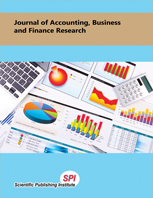The Effect of Board Attributes on Real Earnings Management in Nigerian Financial Institutions
DOI:
https://doi.org/10.20448/2002.11.76.83Keywords:
Board attributes, Financial institutions, Real earnings management.Abstract
The purpose of this study is to examine the relationship between board attributes and real earnings management of listed Nigerian financial institutions. The residuals from Roychowdhury model (2006) is used to proxy real earnings management. Data were collected from 45 financial institutions quoted on the Nigerian Stock Exchange (NSE) from 2011 to 2016. For analysis purpose, the Panel Corrected Standard Errors (PCSEs) regression was utilized. The regression result shows that board meeting and board expertise have a significant positive impact on real earnings management. Whereas, female directors has a significant negative influence on real earnings management. The study recommends that the authorities concerned in Nigeria should concentrate on the recent technique of real earnings management (cash flow from operation, discretionary expenses and cost of goods sold) known to board members in developed economies in order to play a pivotal role in constraining corporate managers to act opportunistically in the ordinary course of business activities and preparing financial reports.


